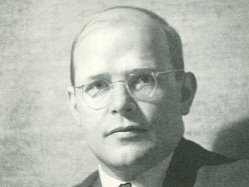This controversy has to be viewed in the context of New York City’s 9/11 trauma — and the context of one uncomfortable truth: 9/11 was a faith-based initiative. The hijackers were operating on strongly, perhaps primarily, religious motivations, and the religion that motivated them was Islam. To be sure, it was Islam as they understood it, and millions of Muslims do not understand their faith in that way. On the other hand, the number of Muslims who do understand their faith as Muhammad Atta did is far from insignificant. What we sometimes call “political Islam” is not a distortion of Islam; it is a particular understanding of Islam that crops up far too frequently to be so casually dismissed.
I’m willing to grant that the Cordoba House organizers have a very different understanding of Islam. For them it may truly be (pardon the politically correct phrase) a religion of peace. But Islam is not always so.
It’s time to acknowledge that the understanding of Islam that made Ground Zero into Ground Zero lies within, not outside, the spectrum of Islam as it is understood and practiced around the world.
Filed under: Culture, Evil, History, Patriotism, Politics, Religion, Terrorism, Worldview | Tagged: National Defense, Patriotism, PC Professors, Politics, Terrorism | 3 Comments »





























































